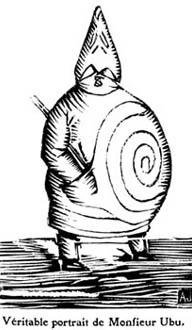User Login |
Laura Elrick Fantasies in Permeable Structures
Laura Elrick's Fantasies in Permeable Structures is a poem written in 32 sections, in 32 lines throughout the poet's 32 year. Elrick writes in her introductory note that the present work is not an "exclusively authentic experimental idiolect." She describes her work more as a saprophyte that "flourishes in the cracks and crevices of dead materials. Metabolically decomposing as it feeds." The poem is comprised of an exquisite collection of words that focuses on the power of institutions and the power of language. It touches on topics that are rather difficult to write about poetically. She is nonetheless a revolutionary voice that brings to the table the bleak reality of the world through different structures and institutions. In intertwining the complexities of language and how it has manipulated places and people throughout time Elrick's writing holds a heavy weight on both the past and present. Her work is a pendulum that swings in both directions forcing the reader to make connections to power. Not more than seven lines in, Elrick writes:
See what of me more or less is but a habit of language. The first section touches on historical organizations that have tried to counter-hegemonic institutions. Summon me. Hudson Valley Land Tenants/ With your tin horns Summon me. Fugitives/ From the South and Southern Yeoman (raced as/ You were). And summon Tejanos, Free Soldiers/ Iroquois and Sioux Summon Wobblies/ And Womanists. Summon Freedom Riders / Summon Black Panthers and prison fighters... History takes a dominant stance in her work, as it should when discussing Imperialism, war, and colonization. Elrick's rage is passionate and it permeates through the pages. The dialect she uses is counterintuitive in a way but nonetheless pours truth, and her metaphorical speech is ingenious. In section 12 she writes about commodities in relation to the war; Here I commodify tenderness, here/ my brother dead on a street in Baghdad, killed/ by my brother (sister signifying curseless) cursing/ tongueless, utility seam on sleeve. Towards the end, in section 32, Elrick makes references to an abundance of frivolous regulations that life has. It comes down to the fact that we all are trying to survive in a world bogged down with rules, almost as if there is no way to escape it. She leaves the reader with a cold image, a demand to Go on and get yourself out of here./ Go on and get you something to eat. Her work is brilliant and makes one want to read it over and over again, for every time there is something that was not seen before. There is a new idea or word that permeates through the structure of her writing. She explains in the introduction that the word "‘fantasy' acts as a conceptual anagram of the selves through which the plotted language of institutions permeates".
categories [ Poetry Reviews ]
login or register to post comments | printer friendly version
|
